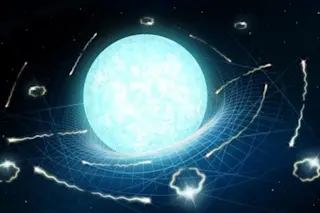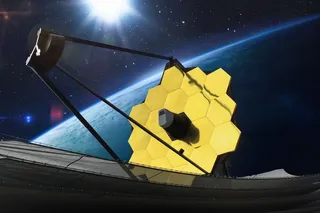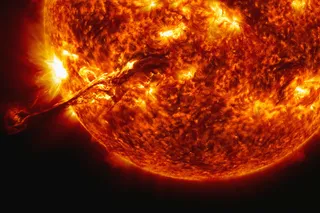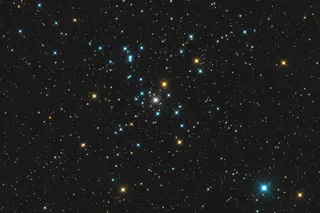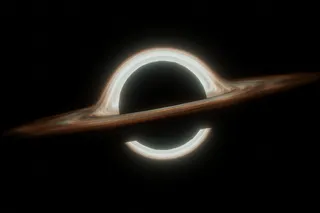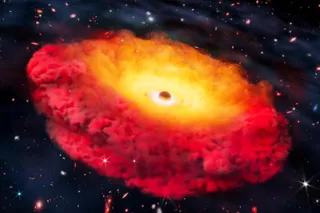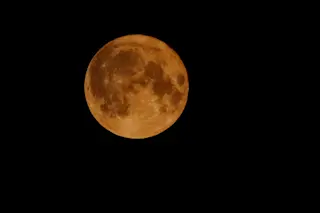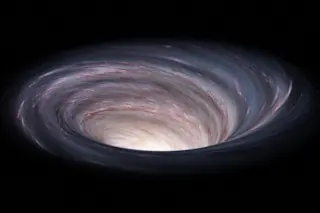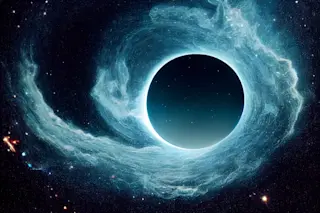Call it a follow-up question to a beyond-the-grave debate: Albert Einstein theorized that black holes can only grow. Stephen Hawking postulated that they can decay. After a group of scientists published a paper supporting Team Hawking, inquiring minds wanted to know how long before the Universe itself completely fades away.
The answer, according to an article in the Journal of Cosmology and Astroparticle Physics, is a “1” followed by 78 zeroes and the word “years.” That is much faster than some earlier estimates of a 1 with 1,100 zeros and the word years, but still a very, very long time.
Can Black Holes Evaporate?
The process by which the smaller number was arrived at sounds like a punchline to a joke that begins “what happens when a black hole expert, a quantum physicist, and a mathematician all walk into a bar?”
Three such scientists from Radboud University, Nijmegen, the Netherlands initially sided with Hawking in the 2023 paper. In 1975, Hawking contradicted Einstein, saying that particles and radiation could escape from a black hole.
The process works like this: imagine two temporary particles forming at the edge of a black hole. Before they can merge into a single unit, one particle gets sucked into the black hole, while the other escapes. The result of this “Hawking radiation” is that a black hole slowly decays into particles and radiation.
In 2023, black hole expert Heino Falcke, quantum physicist Michael Wondrak, and mathematician Walter van Suijlekom showed that this process applies not just to black holes, but to any large objects with a gravitational field, including neutron stars.
Read More: Here’s What Would Happen If You Walked Through a Black Hole
Evaporation Time
Although the researchers determined that the evaporation of any large object depends upon its density, they found some quirks in their calculations. The calculations further showed that the evaporation time of an object depends only on its density.
For example, they determined that a neutron star and a stellar black hole would take about the same amount of time (a 1 with 67 zeroes and years) to disappear into nothingness. This surprising answer is likely the result of two competing forces at play. Although black holes have a stronger gravitational field, they also lack a surface.
Read More: When Black Holes Die, They Are Reborn As White Holes
The Moon and Human Evaporation
The researchers also calculated the time necessary for both the Moon and a human to evaporate via Hawking-like radiation. The answer? A 1 with 90 zeroes and years. The researchers note that other processes may be in play besides Hawking-like radiation.
Although there is an element of whimsy to making such calculations, there is a serious undertone.
"By asking these kinds of questions and looking at extreme cases, we want to better understand the theory, and perhaps one day, we unravel the mystery of Hawking radiation," van Suijlekom said in a press release.
Article Sources
Our writers at Discovermagazine.com use peer-reviewed studies and high-quality sources for our articles, and our editors review for scientific accuracy and editorial standards. Review the sources used below for this article:
Physical Review Letters. Gravitational Pair Production and Black Hole Evaporation
Journal of Cosmology and Astroparticle Physics. An upper limit to the lifetime of stellar remnants from gravitational pair production


